
Five of 8 patients with metastatic urothelial cancer benefited from the combination of ipilimumab and nivolumab after having no response to single-agent nivolumab.

Your AI-Trained Oncology Knowledge Connection!


Five of 8 patients with metastatic urothelial cancer benefited from the combination of ipilimumab and nivolumab after having no response to single-agent nivolumab.

Combining the PD-1 inhibitor pembrolizumab with chemotherapy induced objective responses in one-third of patients with previously treated metastatic urothelial carcinoma.
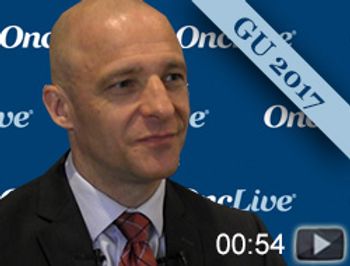
Eric Jonasch, MD, professor, The University of Texas MD Anderson Cancer Center, discusses the promise of immuno-oncology agents in sarcomatoid renal cell carinoma (RCC).

Gary Steinberg, MD, director, Urologic Oncology, The University of Chicago Medicine, discusses the immune response results of vesigenurtacel-I (HS-410) vaccine in non-muscle invasive bladder cancer (NMIBC).

Michael J. Morris, MD, Memorial Sloan Kettering Cancer Center, discusses bone biomarkers for radium-223 dichloride (Xofigo) in castration-resistant prostate cancer.

The PD-L1 inhibitor durvalumab demonstrated compelling clinical activity and a manageable safety profile as second-line therapy for locally advanced or metastatic urothelial cancer.

The genomic-based Decipher test effectively predicted metastasis and prostate cancer-specific mortality from diagnostic biopsy specimens for patients with intermediate- and high-risk prostate cancer.

Arjun Balar, MD, director, Genitourinary Medical Oncology Progam, NYU Langone Medical Center, discusses the results from the KEYNOTE-053 trial in cisplatin-ineligible advanced urothelial carcinoma.

According to preliminary results from an ongoing trial, half of a small group of patients with metastatic castration-resistant prostate cancer had a PSA response during treatment with the PD-L1 inhibitor durvalumab and the PARP inhibitor olaparib (Lynparza).

According to results of a prospective clinical study, circulating tumor cell mRNA of full-length androgen receptor (AR) correlated with detection of the AR-V7 variant and with response to AR-targeted therapy for castration-resistant prostate cancer.

William Oh, MD, professor, Mount Sinai Hospital, discusses the results from a trial that compared second-line chemotherapy to alternative androgen receptor-targeted agents (ARTA) in patients with metastatic castration-resistant prostate cancer (mCRPC).

Josh Armenia, PhD, Memorial Sloan Kettering Cancer Center, discusses the results of an analysis of significantly mutated genes in prostate cancer.

Andrea B. Apolo, MD, chief of bladder cancer section, National Cancer Institute, discusses the phase I study of cabozantinib (Cabometyx) plus nivolumab (Opdivo) and ipilimumab (Yervoy) in patients with refractory metastatic urothelial carcinoma (mUC) and other genitourinary tumors.

Hans Hammers, MD, PhD, associate professor, Internal Medicine, UT Southwestern Medical Center, discusses HyperAcute Renal (HAR) immunotherapy in patients with renal cell carcinoma (RCC).

Scott T. Tagawa, MD, Weill Cornell Medicine/New York-Presbyterian, discusses updated results from the IMMU-132 trial in metastatic urothelial cancer (mUC).

Up to 94% of patients with metastatic castration-resistant prostate cancer have circulating tumor DNA with at least 1 genetic alteration, suggesting ctDNA could be a noninvasive alternative to traditional tumor biopsies and help personalize treatment in this setting.
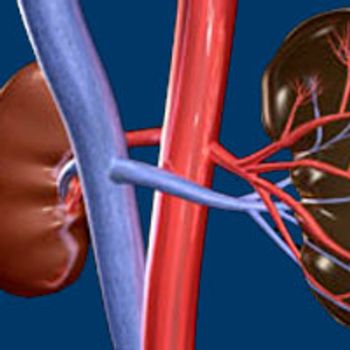
Use of antibiotics up to a month before treatment with a checkpoint inhibitor may decrease the efficacy of the immunotherapy agent, results of a retrospective analysis show.

Some patients who had to stop their PD-1/PD-L1 immunotherapy because of an immune-related adverse event proved to be sustained responders, even after being off the therapy for more than 6 months.
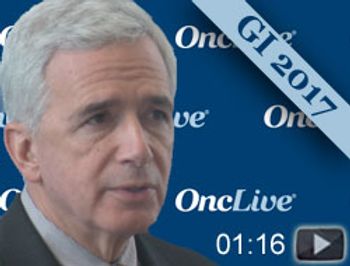
Mark S. Talamonti, MD, clinical professor, NorthShore University HealthSystem, discusses some of the recent surgical advancements in pancreatic cancer.

Christophe Mariette, MD, PhD, surgical oncologist, professor of Surgery, University Hospital of Lille, discusses the results of a study investigating postoperative mortality after patients undergo surgery for esophageal and gastric cancer.

Arturo Loaiza-Bonilla, MD, medical oncologist, the University of Pennsylvania, discusses a study investigating differences in mutation rates between right- and left-sided colorectal cancer.

In a single-arm phase II study, cabozantinib demonstrated clinical activity in patients with advanced carcinoid and pancreatic neuroendocrine tumors.

Ghassan K. Abou-Alfa, MD, medical oncologist, Memorial Sloan Kettering Cancer Center, discusses ongoing studies investigating immunotherapy in hepatocellular carcinoma.

Patients in all age groups derived a survival benefit from treatment of advanced gastric or gastroesophageal juncture cancer with the monoclonal antibody ramucirumab, an analysis of 2 randomized trials showed.

Patients with advanced hepatocellular carcinoma had a worse survival following progression if they developed new extrahepatic lesions as opposed to other types of progression, supporting the concept of post-progression survival and the influence of different patterns of progression, according to an analysis of the phase III RESORCE trial.

Ian Chau, MD, consultant medical oncologist, Royal Marsden Hospital, discusses interim safety and clinical activity results in patients with advanced gastric or gastroesophageal junction adenocarcinoma from a multi-cohort phase I study of ramucirumab plus pembrolizumab.
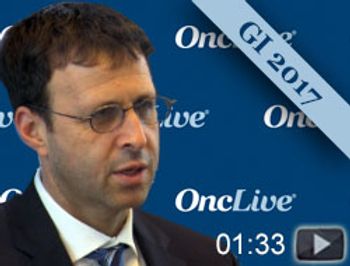
Richard Finn, MD, associate professor of medicine at the UCLA David Geffen School of Medicine, discusses the promise of regorafenib (Stivarga) for the treatment of hepatocellular carcinoma (HCC), as seen in the phase III RESORCE trial.
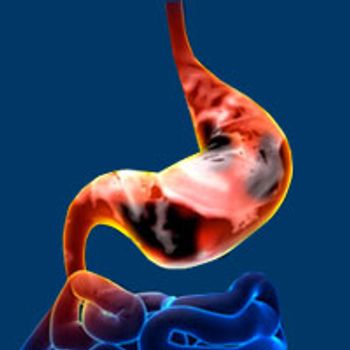
Results from a retrospective multicenter study suggest that continuing trastuzumab beyond progression may improve survival in patients with HER2-positive advanced gastric or gastroesophageal junction adenocarcinoma who progress on first-line trastuzumab plus platinum-based chemotherapy.
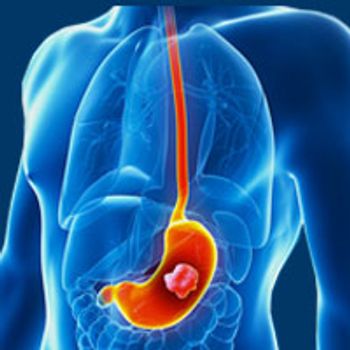
Surgical palliation in patients treated for malignant gastric outlet obstruction maintains quality of life and improves solid food intake for at least 3 months after surgery.

A combination regimen of pembrolizumab plus ramucirumab demonstrated modest activity in patients with previously treated gastric or gastroesophageal juncture cancer.